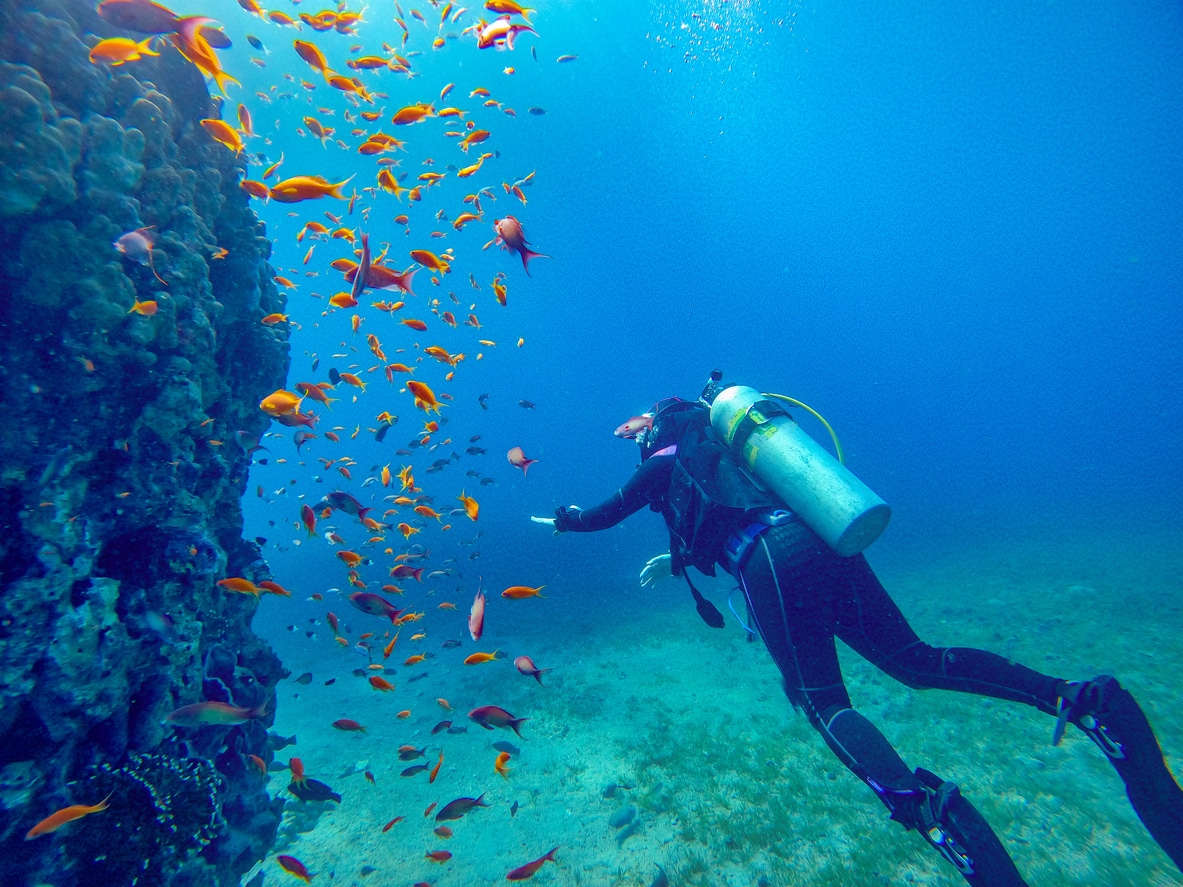If you have ever had ear pain accompanied by a popping sound or discomfort in the ears while flying or scuba diving, you are likely experiencing ear barotrauma.
Let’s look closer at ear barotrauma and what you can do to prevent elevation and depth from harming your ear health.
What Is Ear Barotrauma?

Ear barotrauma occurs when there is a sudden change in air or water pressure in your environment. When the surrounding pressure changes dramatically, the Eustachian tube, a narrow passage connected to the middle ear, cannot regulate air pressure fast enough, leading to an imbalance. Symptoms of ear barotrauma include:
- Discomfort or pain in your ears
- Muffled hearing
- Slight to moderate temporary hearing loss
- Feeling of fullness or stuffiness in your ear
Tinnitus, moderate to severe hearing loss, more significant pain and pressure, vertigo and bleeding in the ears may also present in severe cases.
When Is Ear Barotrauma Most Likely to Occur?
Ear barotrauma is most likely to occur during activities where you change elevation and depth quickly, such as diving or flying.
A review of inner ear disorders in scuba divers found that “Among ear injuries, middle ear barotrauma is the most common condition, fortunately, in most cases, it resolves spontaneously in a short time without serious complications.” The review also found that, although it is less common, complications of the inner ear, such as inner ear barotrauma, can result in permanent hearing loss, tinnitus, vertigo and unsteadiness.
During flights, ear barotrauma during take-off and landing is referred to as airplane ear. Airplane ear is relatively common, with an estimated 10% of adults and 22% of children experiencing changes to the eardrum pressure during and after a flight.
Knowing how to prevent ear barotrauma during a dive or flight out of Ruston Regional Airport is important to protecting your ear health.
How Can Ear Barotrauma Be Prevented?
Although most cases of ear barotrauma are mild and resolve on their own, severe cases leading to permanent damage are possible. You can help prevent damage to the ear or other unpleasant symptoms of ear barotrauma by taking steps to equalize the pressure between your middle ear and the environment around you. Some methods to equalize pressure include:
- The Valsalva maneuver. The Valsalva maneuver involves plugging the nose, closing the mouth and blowing as if you are blowing your nose into a tissue. It is recommended to do this repeatedly during take-off and landing in a plane or early and often during descent in scuba diving.
- Swallow or yawn. Swallowing and yawning is a simple and easy way to equalize pressure. Chewing gum or sucking on hard candy is helpful during a flight to increase swallowing frequency. To swallow while diving, pinch your nose first to avoid sucking in air.
Contact Advanced Audiology & Hearing Aids today to speak with one of our specialists about protecting your ear health.